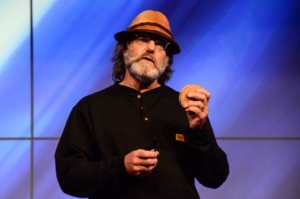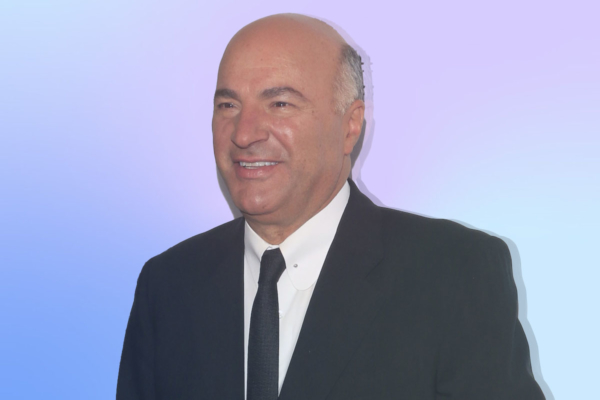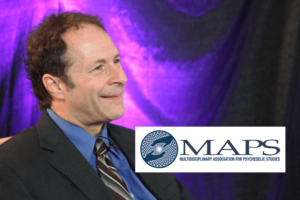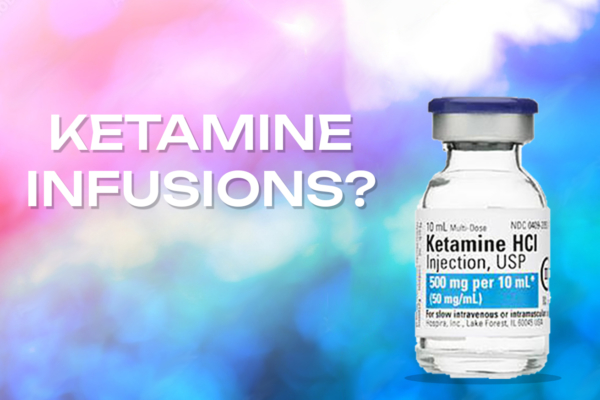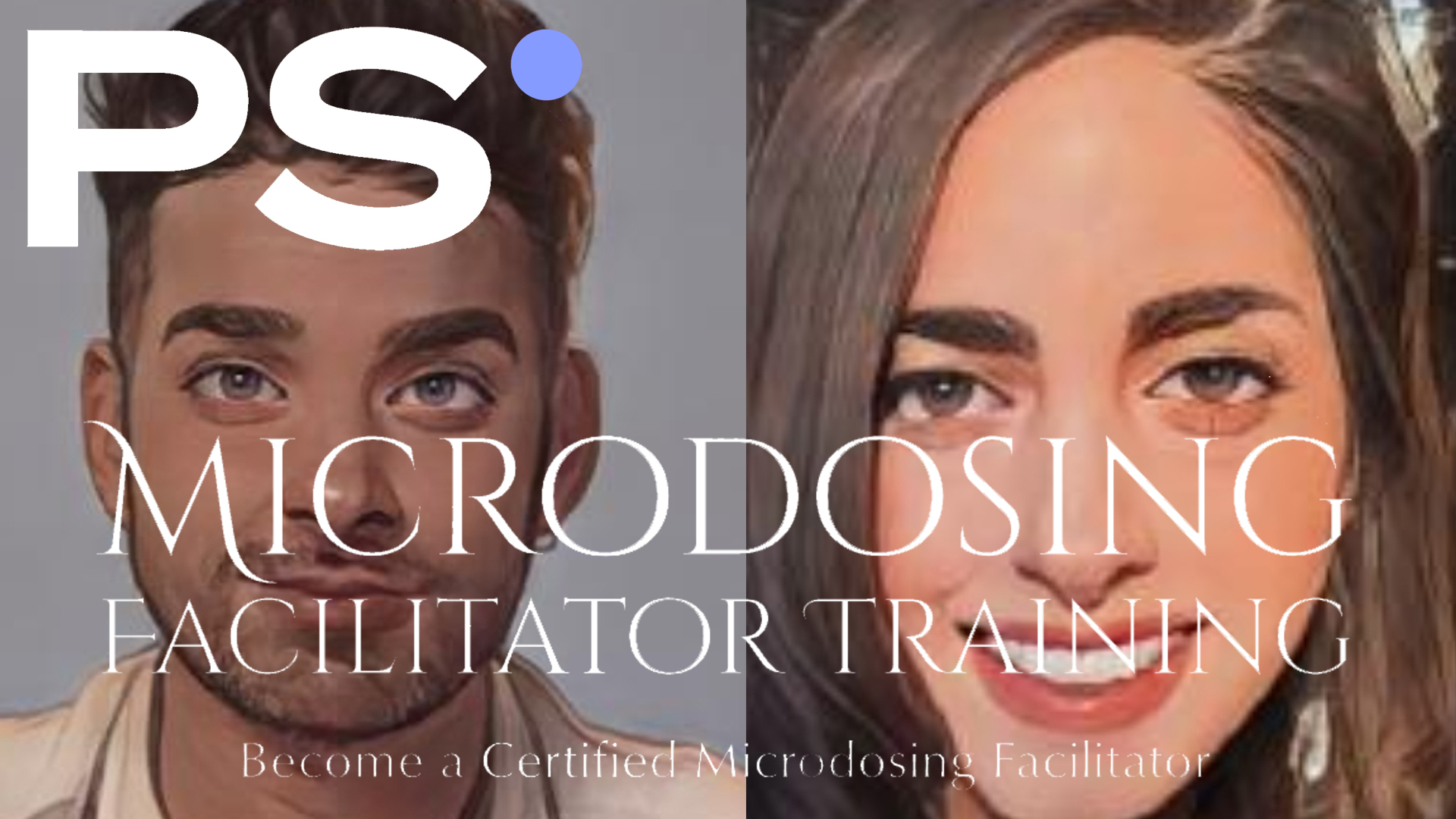
I first met Danielle Nova at Mount Sinai Hospital in Miami Florida at The Summit on Breakthrough Therapies for Addiction, where she was one of the speakers.
I appreciated Danielle’s candor in speaking to her experiences with substance use disorder, and the way in psychedelic therapies are working to help individuals who have become dependent on pharmaceutical psychotropic medications to be able to titrate off, which can be a harrowing and dangerous endeavor.
In speaking with her, I learned that Danielle, alongside her collaborator Adam Bramlage, had developed a comprehensive Microdosing Facilitator Training program which they’d run in the past and were preparing to run again in July. After visiting their website and speaking at length with them both, it was clear that this was one of the most comprehensive and in-depth facilitator training programs I’d ever seen.
Reflections On The Stream…
This past week we featured Danielle and Adam on our livestream program called Shroomstream, which we host every other week when everyone is available on the Psychedelic Spotlight YouTube channel. Tuesdays at 6pm PT. It’s meant to be a community forum to encourage discussion on all things psychedelic and psychedelic-adjacent, so stop by when you have time!
We wanted to connect with Danielle and Adam at this time because their cohort is starting up again this Sunday July 14th 2024 and we sought to afford them the opportunity to come on and share in greater detail what the training program will entail and the origin story of this effort. In full transparency, Psychedelic Spotlight is an affiliate of the program and we do receive a commission for those who sign up through the course using our affiliate code: PSMICRO. But we wouldn’t advocate for the Microdosing Facilitator Training program if I we didn’t believe that what they’re offering was a world-class opportunity.
What’s Trending? Oh Yes…Microdosing’s Trending!
It’s safe to say that microdosing might possibly be the most popular topic in all of the psychedelic space currently. Although it’s been quite popular for several years now it continues to grow and grow, thanks in large part due to the efforts of individuals like Adam and Danielle who are training the facilitators of tomorrow, today, and ultimately giving people access to a very valuable commodity that is not illegal. Information.
What is microdosing in actual practice?
“Microdosing is the use of non-intoxicating doses of psychedelics, intended to enhance creativity, performance and aid with everything from mental health and anxiety to addiction,” Said Bramlage. “In the last decade microdosing has really broken through into the general population especially for its helpfulness and mental health with depression and anxiety.”
Order and Method…
To microdose efficiently and effectively means to follow a dedicated regimen. This will differ from user to user. It’s not just taking a small dose one time, it’s using that small dose over repeated schedule of the course of weeks or many months.
“It might be taking a microdose three times a week,” said Bramlage. “More often than not some people are taking it four or five days during the week, so it’s the repeated use of psychedelics and non-intoxicating doses to improve, and enhance your life.”
When asked about some of the myths that Bramlage has encountered while working in this space, he was quick to point out what is perhaps the leading misconception around the microdosing topic at large.

Microdosing Is For Everyone! Eat More Microdosing!
“You know it’s really important to mention that psychedelics are not for everybody and microdosing is not for everybody,” said Bramlage. “Let’s be clear that microdosing is not a cure all. It’s not a magic pill. There’s a lot of work and integration and all kinds of stuff that goes with it, which is why we founded this training program. We’ve had all kinds of doctors, therapists and clinicians reaching out to us wondering how they could actually work with their clients and colleagues because what we’re finding is that people these days are finding microdosing way more approachable than a large dose experience.”
At Psychedelic Spotlight, we’ve always felt that amassing quantities of anecdotal experience and framing them in an educational/archival context could help provide a more comprehensive information base for some of these more fringe therapies, rendered so simply dut to the fact that they have been so misunderstood for so long.
It is always intriguing to hear about how microdosing in particular is affecting families for the better, and not just the individual endeavoring to use this modality..
“Microdosing is life-changing for parents,” Bramlage said. “As a parent, you’re not reacting in the same ways when the child is spilling milk. You’re calmer. You’re not defaulting to negativity as much. It’s a really groundbreaking modality for parents.”
Hearing once again about the purported benefits being experienced through microdosing, why might you want to involve yourself and make the commitment of time and financial resources to undertake participating in such a cohort?

Microdosing Facilitator Training – An International Effort
“We are a global community now,” said Nova. “We have a beautiful cohort of amazing people. Our classes are live every Sunday at 2:00 p.m. Pacific time and every other Thursday at 6:00 p.m. Pacific time. We have 16 incredible guest teachers, including Dr. Jim Fadiman. Widely considered as the father of microdosing he’s the original psychologist and psychedelic researcher that introduced microdosing into the public consciousness.”
While Dr Fadiman May indeed be the highest profile teacher within the cohort, the facilty list is inspiring as you go down the line.
“Laura Dawn is going to be speaking about psychedelics, microdosing and creativity,” said Nova. “Doctor Ganesh Gern is a leading psychedelic neuroscientist and researcher at UCSF who is working alongside Robin Carhart-Harris doing psilocybin research. He is an incredible speaker that teaches about self-motivated neuroplasticity and how we can train practitioners to be able to help their clients really receive the benefits of microdosing and neuroplasticity, and how we can be a participant in that process to grow, evolve and change our brains.”
And the list goes on.
So I’m All Trained Up. Now what?
You may ask what happens after the facilitator training concludes. Will there be any continuing connection to a greater community? What sort of support mechanisms will be in place as you endeavor to apply the lessons that you’ve learned in facilitating experiences for yourself and most importantly for others?
Danielle was enthusiastic in answering this question.
“We’re going to provide ongoing support, consultation and membership, mentorship for our students so that they have a community and network of practitioners that they can feel support with as they work with clients,” she said. “We’re going to have retreats, conferences, and, you know, build opportunities for our students to really get involved in the psychedelic field.”
Though the cohort begins this weekend, on Sunday July 14th, there’s still time to register. Curious to learn more before signing up? Perhaps a good place to start would be watching the webinar that Danielle and Adam have put together to introduce you to the program, its aims, and a number of its facilitators. You can view their webinar on their website: https://www.flowstatemicro.com/microdosing-facilitator-training
Should you happen to sign up and participate in the training we want to hear about your experience! Please don’t hesitate to reach out and share some of your takeaways from the process.
And remember if you are interested in signing up please do use the code PSMICRO for a discount on your registration fee.
